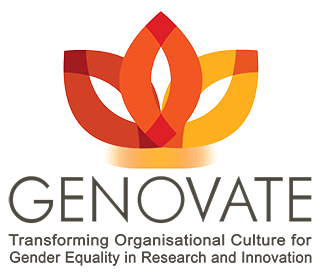 The GENOVATE Community is a platform which enables GENOVATE partners to share institutional information and case studies, and facilitates the coordination of a buddy system for bench learning.
The GENOVATE Community is a platform which enables GENOVATE partners to share institutional information and case studies, and facilitates the coordination of a buddy system for bench learning.
The GENOVATE Community consist of seven GENOVATE partner institutions; the GENOVATE International Advisory Board; key strategic collaborators and stakeholders and the general public. It is a mechanism designed to facilitate meaningful knowledge exchange across the community at local, national and international levels within each of the partner institutions’ countries, across Europe and globally.

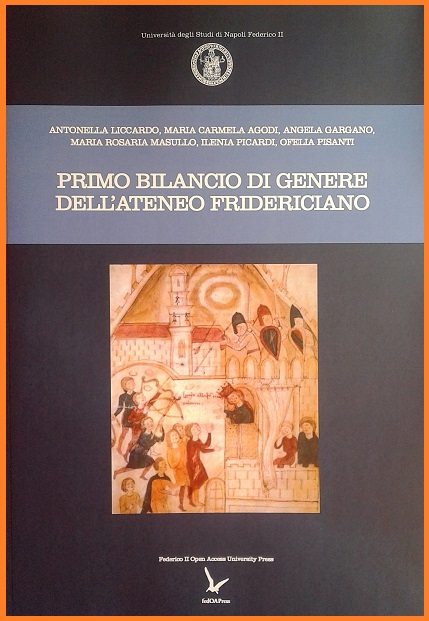

Professor Jonas Ekman, Head of the Department of Computer Science, Electrical and Space Engineering at Luleå University of Technology, Sweden has been awarded the Leader of the Year in Norrbotten Prize. Jonas Ekman who is a member of the LTU GENOVATE Advisory Board received the prize for his modern leadership. Leader of the year in Norrbotten is an annual award and the jury had a record number of nominees to choose between this year.
- Through his focus on development and a strong belief in his colleagues, Jonas Ekman has contributed to the growth of the university and his department with 170 employees. He also strives for increased number of women in terms of both professors and students in a traditionally male-dominated field and has been successful in attracting researchers from other parts of the world to come and work at the department.
Read more http://www.ltu.se/org/srt/Prefekt-utsedd-till-Arets-ledare-i-Norrbotten-1.157069?l=en
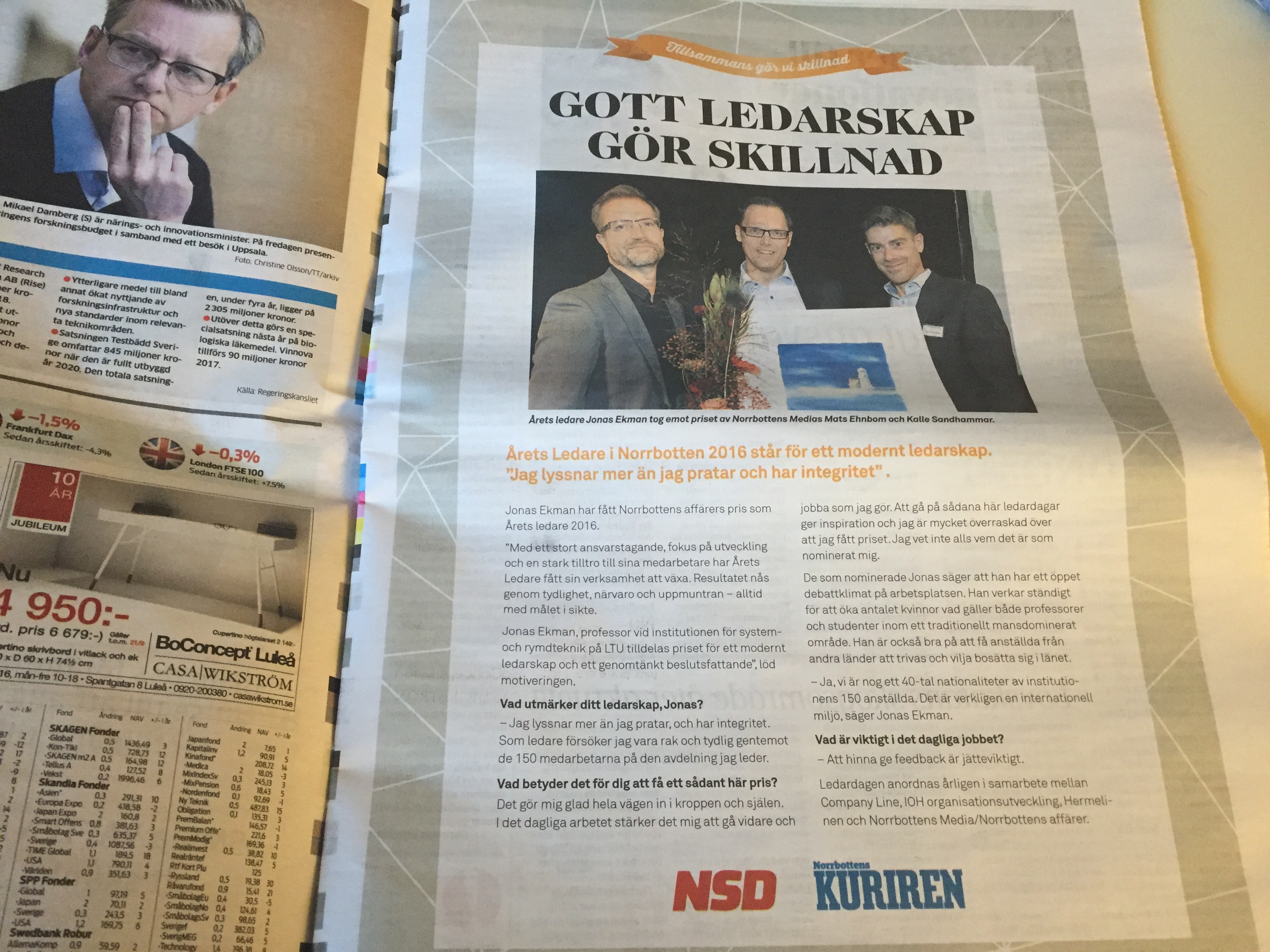

In order to ensure the sustainability of GENOVATE project at the Università degli Studi di Napoli Federico II, the Gender Observatory on University and Research has been established in our institution.
The Gender Observatory aims to promote:
The Gender Observatory consists of four research areas:

Achievements of the GENOVATE FP7 project are discussed at the EARMA Annual Conference June 20-22, 2016 in Luleå. Carina Mattsson and Maria Hjelte present how the Human Resource department is implementing a gender-aware and sustainable recruitment process at Luleå University of Technology (chair: Paula Wennberg). In an other session the GENOVATE Toolkit is launched and demonstrated by Paula Wennberg and Arne Gylling presents how gender dimension is being integrated in the OPTi H2020 project (chair: Ylva Fältholm).
The aim of the OPTi H2020 project is to create a long-lasting impact by rethinking the way district heating and cooling systems are architected, controlled and operated.EARMA, European Association of Research Managers and Administrators is active in the GENOVATE project as a stakeholder. This year’s EARMA conference takes place in Luleå with nearly 600 participants http://www.earmaconference.com/
Read more about this GENOVATE Learning Circle on CDT's website. The learning circle is organised in collaboration with EARMA AC 2016. http://www.ltu.se/centres/cdt/Om-oss/Genus-och-mangfald/Genovate-Learning-Circle-2?l=en
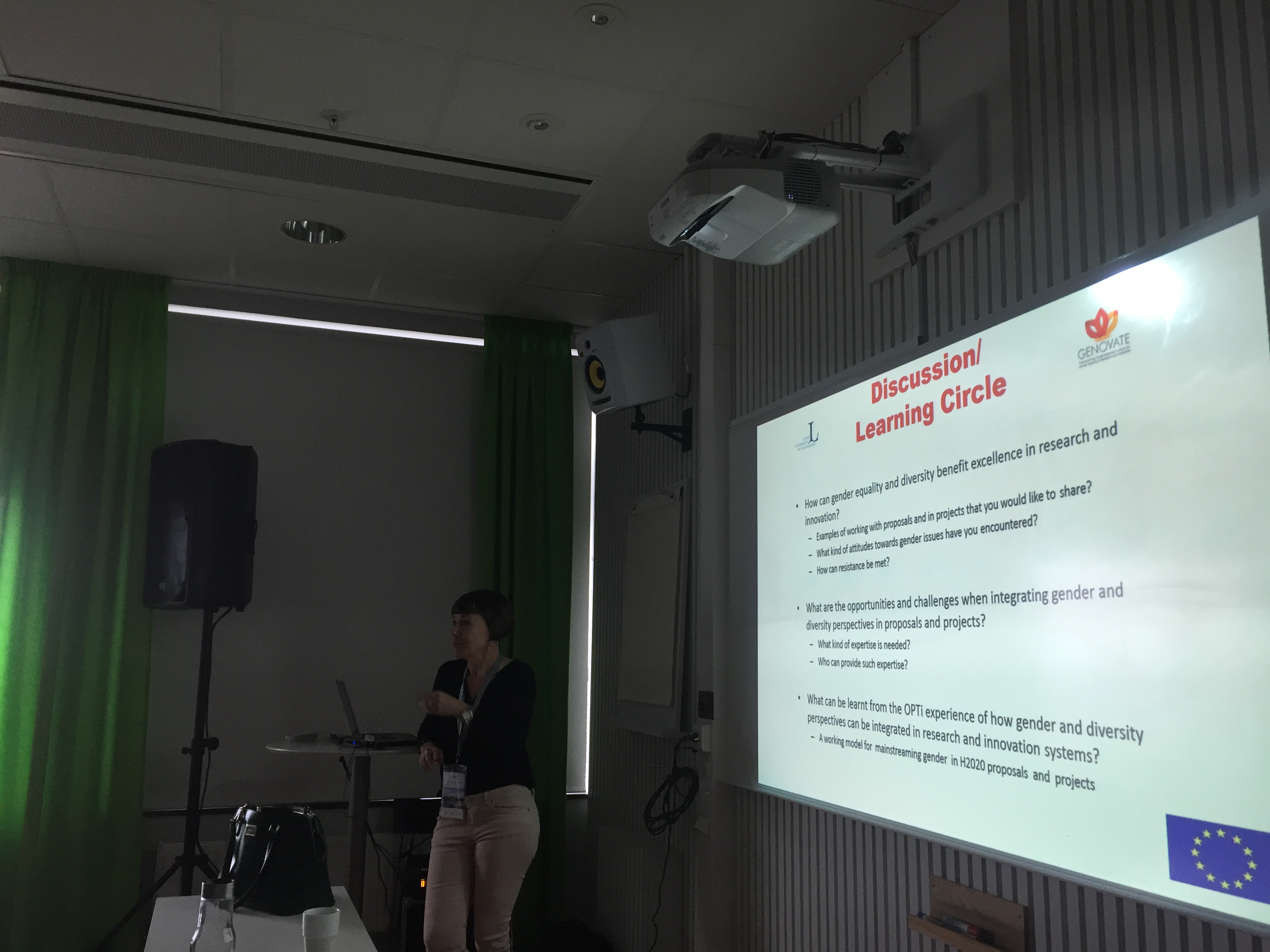
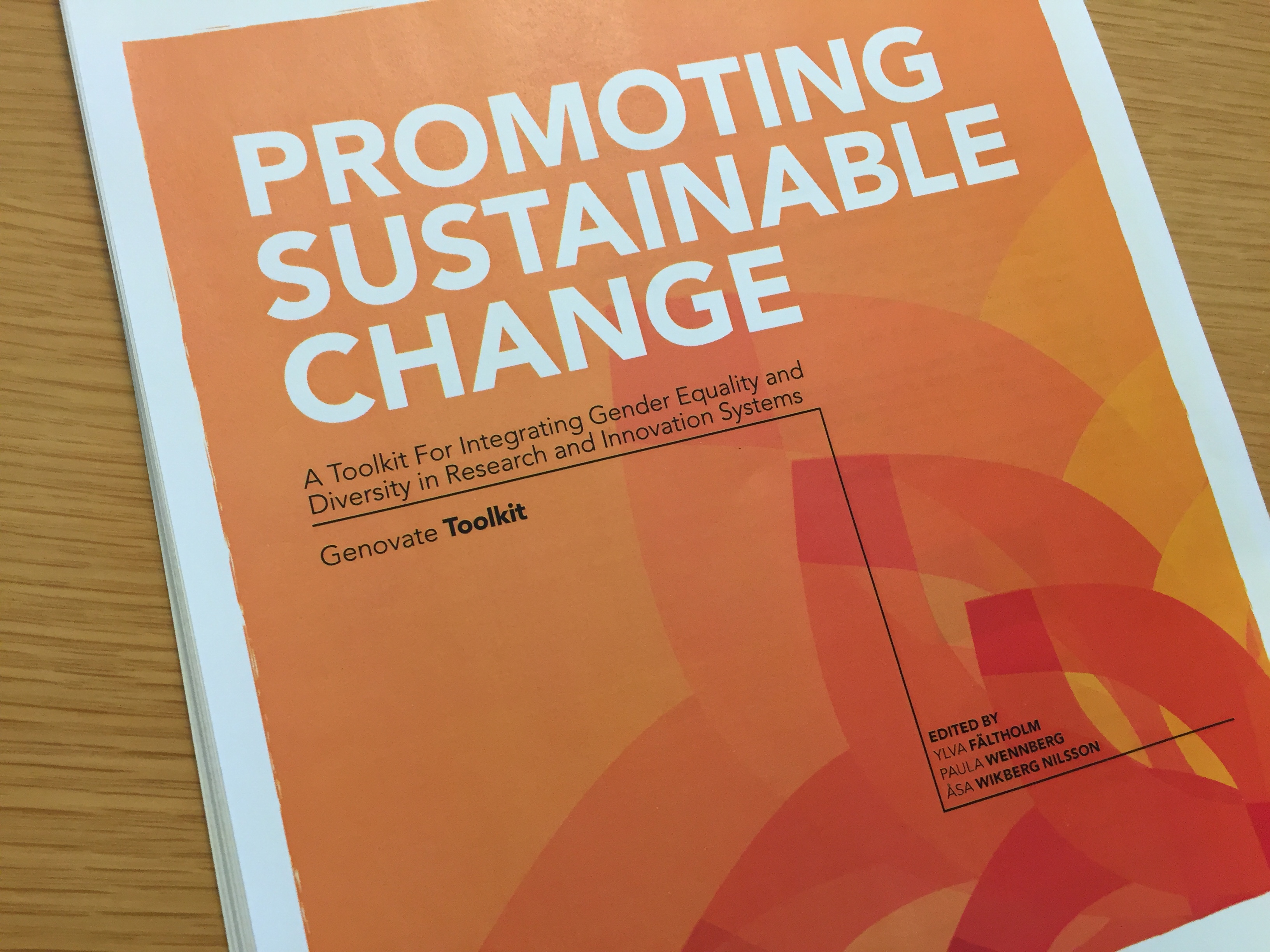

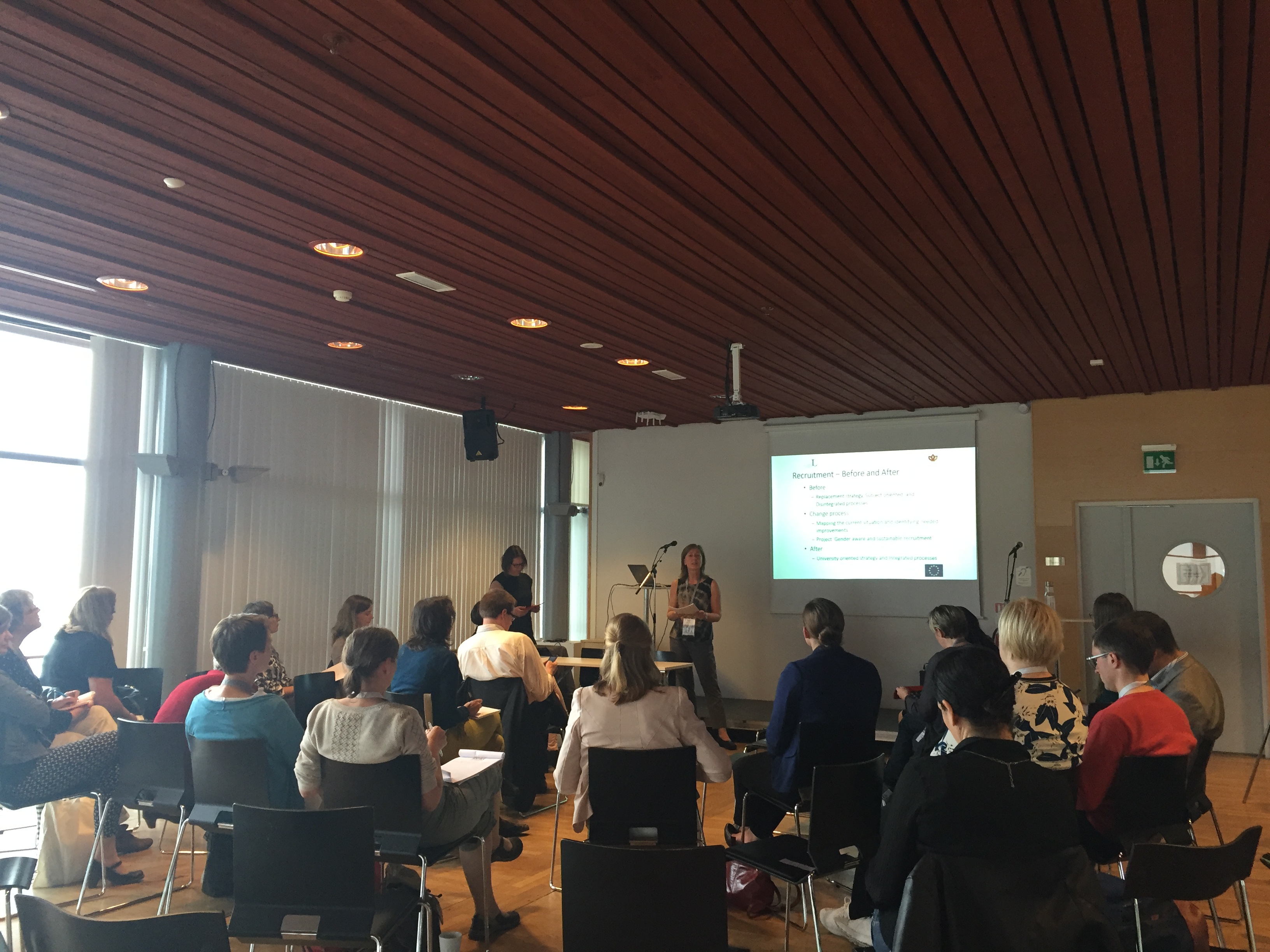

No gender data, no gender issues in academia. It is for this reason that the UNINA-GENOVATE team has decided to include gender budgeting as a key action in the institutional Gender Equality Action Plan (GEAP). The results of this work, that is the First Gender Budget of the Ateneo Fridericiano, will be presented next Tuesday, 7 June 2016 at 9:30, in the Aula Pessina of the University of Naples Federico II.
Raw data and their focused analysis contained in the first UNINA Gender Budget can become a political and administrative tool to implement the principles of the University Statutes. As stated by the UNINA Rector, Prof. Gaetano Manfredi, in the preface to the First Gender Budget of the Ateneo Fridericiano, “UNINA commits to ensuring equal gender opportunities by strenghtening workers’ protection, and by preventing any form of moral or psychological violence, any overt or covert form of discrimination based on gender, age, sexual orientation, ethnicity, disability, religion, and language.”
The first UNINA Gender Budget illustrates how gender disparities persist on campus: while a growing number of women enrol in university and complete their doctorate, top-level academic positions as well as some fields of knowledge production still remain male dominated. These data show how cultural and structural barriers, on the one hand, contribute to women dropping out of university at the very beginning of scientific careers (i.e. the so-called ‘leaky pipeline’ phenomenon); on the other, the data show the persistence of horizontal and vertical segregation mechanisms, with some disciplinary fields and academic positions dominated by one gender only. Significant gender disparities and quite rigid divisions of labour also appear at the Administration level: male staff is, in general, in charge of technical-scientific roles, while women are, more frequently, in charge of technical-managerial jobs.
On the 7th of June 2016 at 9:30 am, Prof. Gaetano Manfredi, Rector of the Università degli Studi di Napoli “Federico II” will introduce the official presentation of the First Gender Budget of the Ateneo Fridericiano, together with Dr. Francesco Bello, UNINA Administrative Director; then Dr. Chiara Marciani, Councillor for Equal Opportunities of the Campania Region Adminsitrative Division; Dr. Simona Marino, City of Naples Councillor and Delegate of the City of Naples Department for Equal Opportunities; Dr. Concetta Giancola, President of the UNINA CUG (Comitato Unico di Garanzia = Equal Opportunities Committee); and Dr. Ofelia Pisanti, National Scientific Coordinator of GENOVATE will also provide some opening remarks.
In the following section, Dr. Luisa Pulejo, Università degli Studi di Messina (UNIME) will briefly introduce the gender budgeting theme followed by the keynote speaker, Dr. Antonella Liccardo, Coordinator of the Gender Budget working group of GENOVATE@UNINA, who will present the First Gender Budget of the Università degli Studi di Napoli “Federico II”.
The “Gender Budget as a tranformative tool in academia” round table will follow, moderated by Dr. Ilenia Picardi (project manager of GENOVATE@UNINA), with the participation of the renowned statistician Dr. Linda Laura Sabbadini, Order of Merit of the Italian Republic (2006); of Dr. Romana Frattini from CUN (Consiglio Universitario Nazionale = National University Council); and of Dr. Maria Carmela Agodi, Chair of the Research Network RN33-Women’s and Gender Studies of the European Sociological Association (ESA). Conclusive remarks will be provided by Dr. Gaetano Manfredi, UNINA Rector.
The official presentation of the First Gender Budget of the Ateneo Fridericiano is part of the “Happy Birthday Federico II – 1224-2016” initiatives to celebrate UNINA’s seven hundred and two years of academic activity, and it is realized under the patronage of the Italian National University Council (CUN).

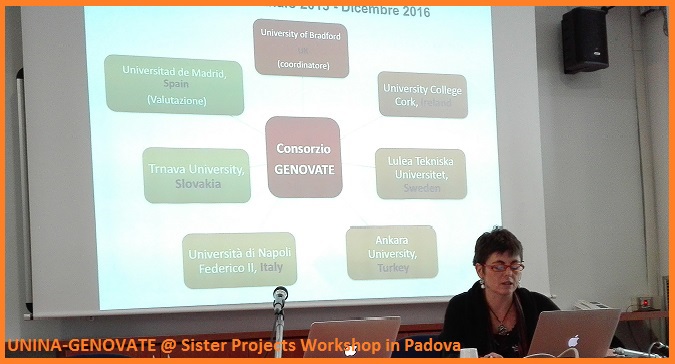
Powered by Multicategories for Joomla!2.5